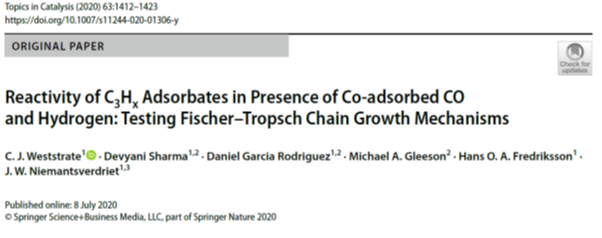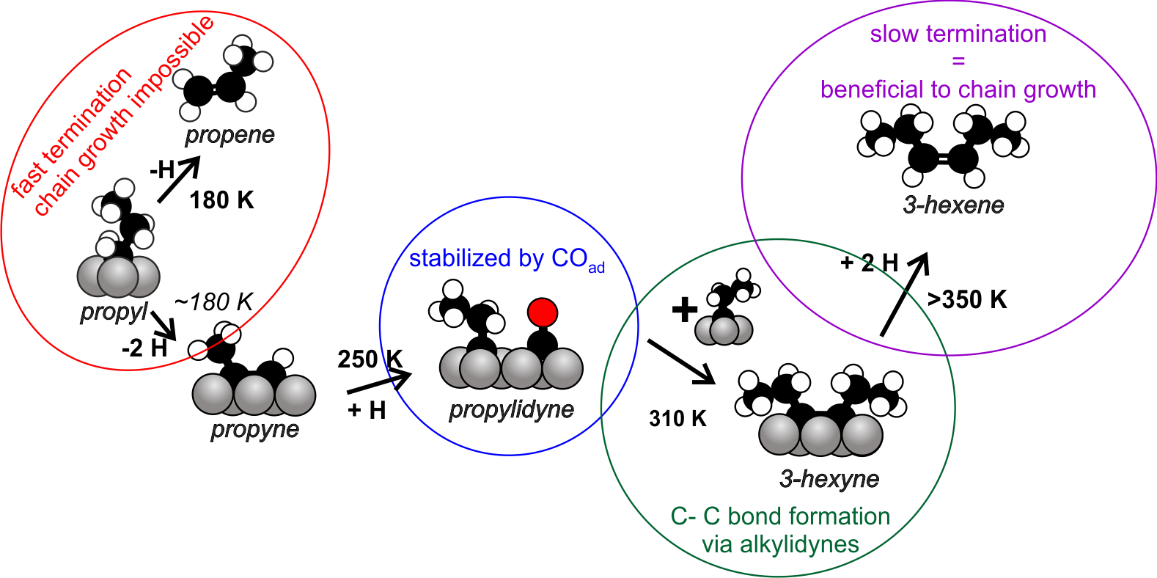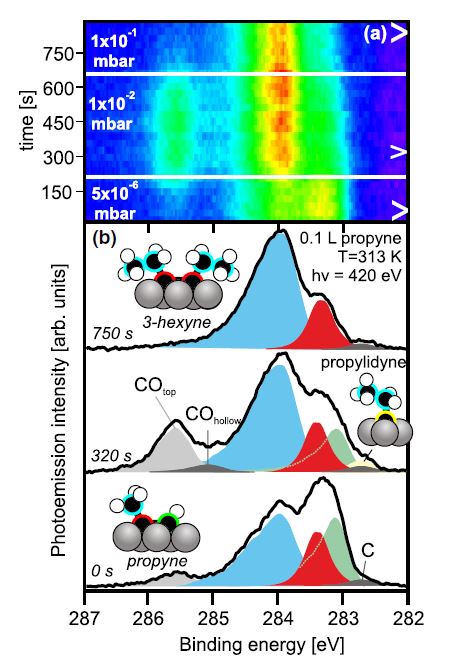Topics in Catalysis publishes article on Fischer–Tropsch Chain Growth Mechanisms over Cobalt
The mechanism by which long chains grow on the surface of a working cobalt catalyst during Fischer-Tropsch synthesis has been a longstanding topic of debate. Mechanistic proposals are often based on analogies with reaction mechanisms in homogeneous catalysis, on the selectivity changes observed upon co-feeding a certain molecule or, more recently, on theoretical simulations of surface reactions.
In a recently published article Syngaschem researchers worked together with researchers of the Dutch institute for Fundamental Energy Research to investigate the reactivity of hydrocarbon adsorbates on the surface a cobalt model catalyst. The study showed that alkyl adsorbates, which are typically considered to be important intermediates for the growth of long chains, are very reactive. This disqualifies them as chain growth intermediates as alkyl adsorbates react and leave the surface before they can meet with a monomer and grow into a longer chain.
An earlier publication (Nat. Comm. 11, 750) showed that C2 adsorbates in their alkylidyne form, i.e. ≡C-CH3, readily couple and form a new C-C bond. The presence of adsorbed hydrogen as well as adsorbed carbon monoxide was furthermore found to be essential as these co-adsorbates stabilize C2 species in the ethylidyne form which is also the reactant needed for C-C bond formation.
The present article confirms that C3 species react in the same way, i.e. co-adsorbed CO and H promote the conversion of propyne to propylidyne, which can couple with another propylidyne. The coupling product, 3-hexyne, is of the alkyne type and requires a high temperature to react with hydrogen and leave the surface as an alkene. These findings confirm that the previously observed C-C bond formation mechanism for C2 species also applies to longer chains, an important finding in the context of FTS where long chain growth intermediates are present on the surface.
The article appeared in special issue of Topics in Catalysis dedicated to the 70th birthday of prof. Norbert Kruse. He has a long and successful career in surface science and catalysis and his recent papers about the chain growth mechanism as well as those about catalysts with a high selectivity for the formation of olefins and alcohols have attracted a lot of interest in the scientific community.
Cite this article
C.J. (Kees-Jan) Weststrate, Devyani Sharma, Daniel Garcia Rodriguez, Michael A. Gleeson, Hans O.A. Fredriksson, J.W. (Hans) Niemantsverdriet, Reactivity of C3Hx Adsorbates in Presence of Co-adsorbed CO and Hydrogen: Testing Fischer–Tropsch Chain Growth Mechanisms. Top Catal 63, 1412–1423 (2020)
Published on January 5, 2021





